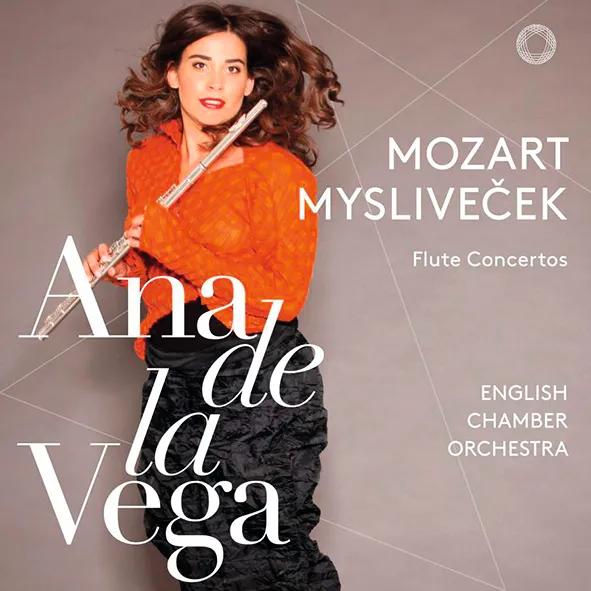
Mozart • Mysliveček Mozart: Flute Concerto No. 1 in G, K313; Flute Concerto No. 2 in D, K314; Mysliveček: Flute Concerto No. 1 in G Ana de la Vega (flute); English Chamber Orchestra/Stephanie Gonley Pentatone PTC 5186 723 (hybrid CD/ SACD) 62:58 mins
This imaginatively programmed recording places a relative rarity alongside Mozart’s two flute concertos. Instead of his flute-harp concerto as (a more familiar) companion offering, the Australian flautist Ana de la Vega here revives the single extant concerto by Josef Mysliveček, Mozart’s slightly older contemporary and friend. Some misleading claims have been made in her championing of the work, which was by no means as ‘lost’ as Pentatone’s publicity appears to suggest, having been given at least two previous recordings (the first by the German flautist Bruno Meier and the Prague Chamber Orchestra, still available on Koch Schwann).
Putting these aside, one may still warm to both de la Vega’s advocacy and her execution, full of fleetness of phrase and appealing purity of tone; the more so since by the highest standards of the period, including Mysliveček’s own, the Concerto comes across as slightly lacking in originality. The outer movements go through elegant concertante motions; it’s only in the middle Andante mezza voce, a cloudless G major rumination which de la Vega and the English Chamber Orchestra take daringly – but convincingly – slowly, that Mysliveček’s distinctness of creative ‘voice’ can be appreciated.
In the two Mozart concertos the solo playing possesses the same charm and freshness, which I feel would have been considerably enhanced by a conductor’s controlling presence. Lacking that, the orchestral parts, albeit delivered with perfect ECO competence, also lack sufficient rhythmic definition and differentiation of dynamics. It’s not a weakness serious enough to spoil pleasure in the works themselves – Mozart’s oft-reported dislike of the flute was clearly a momentary expression of pique – but it does prevent these performances from standing out in an already-crowded field.
Max Loppert